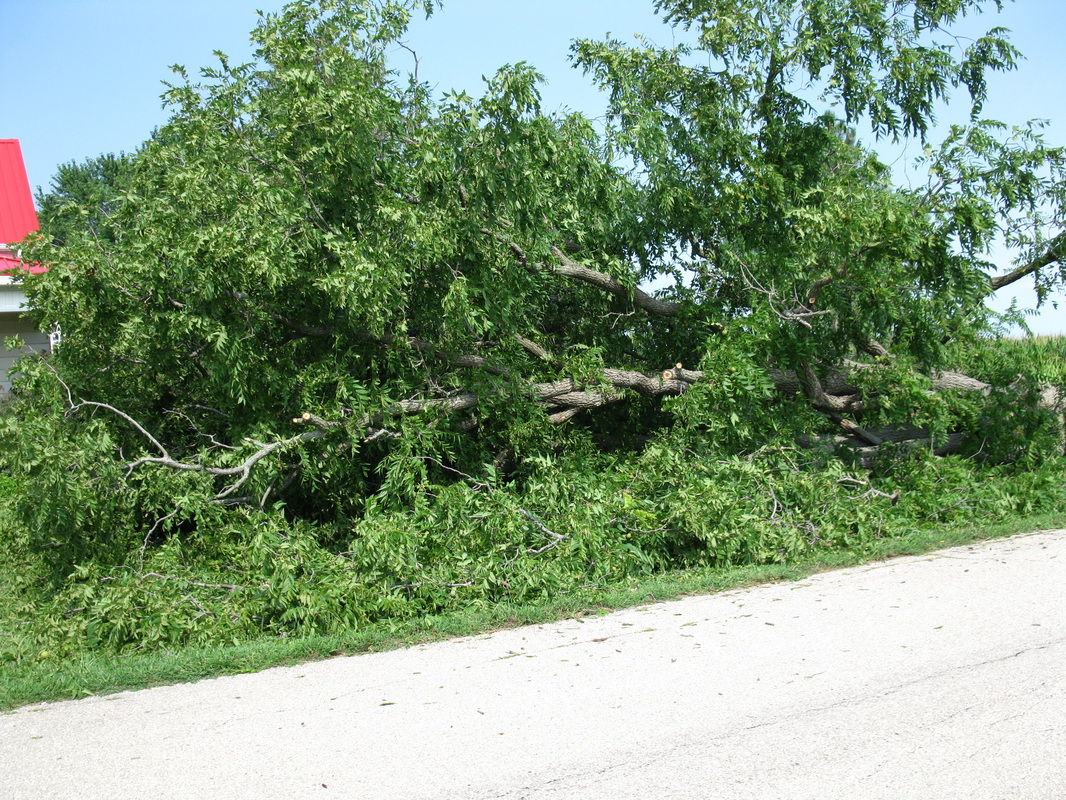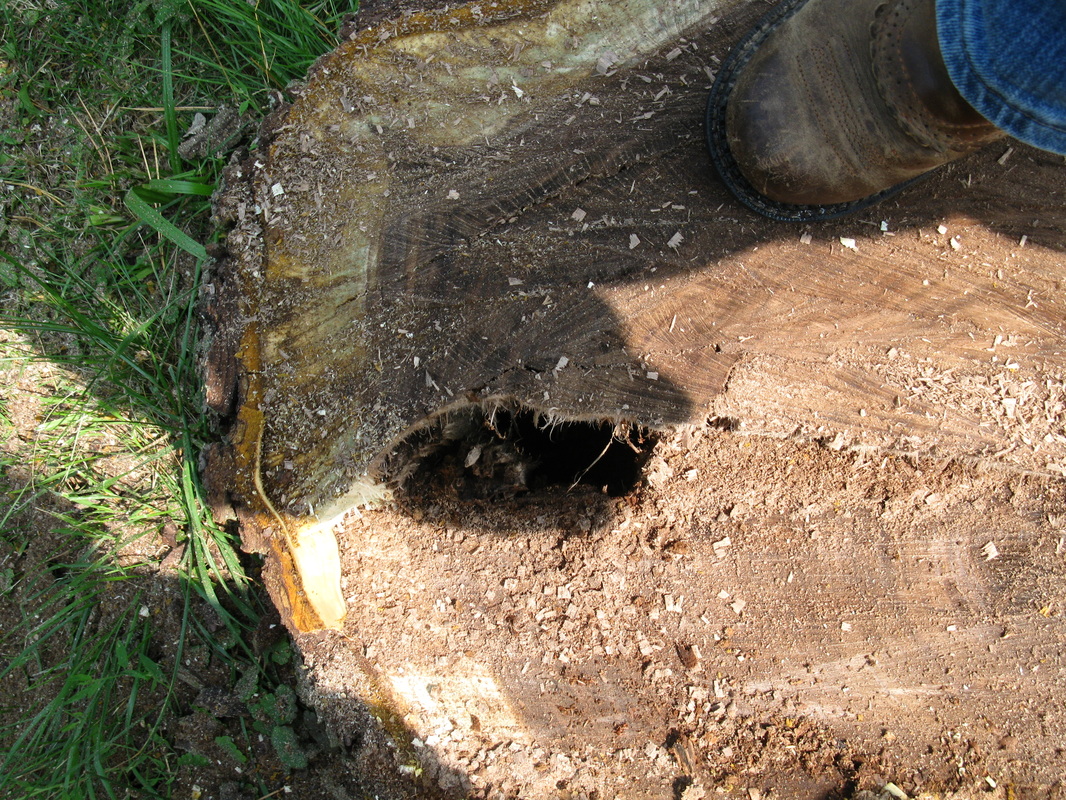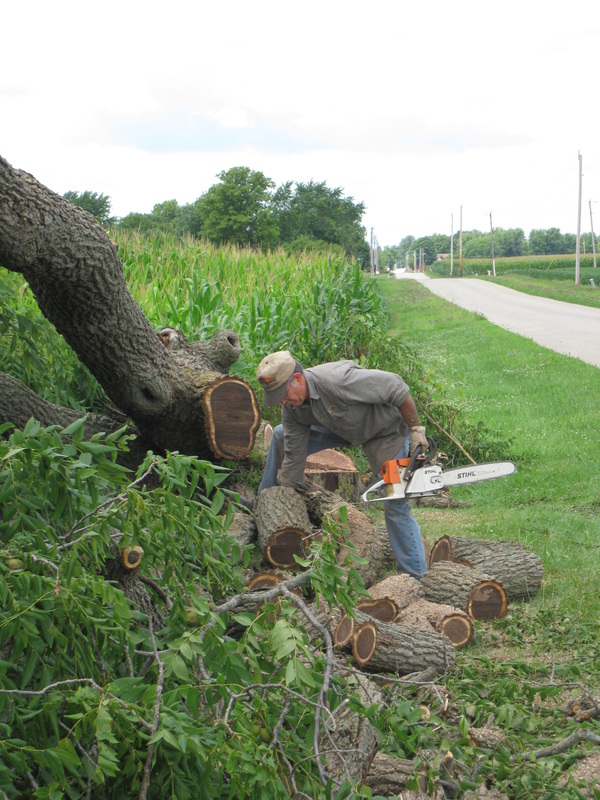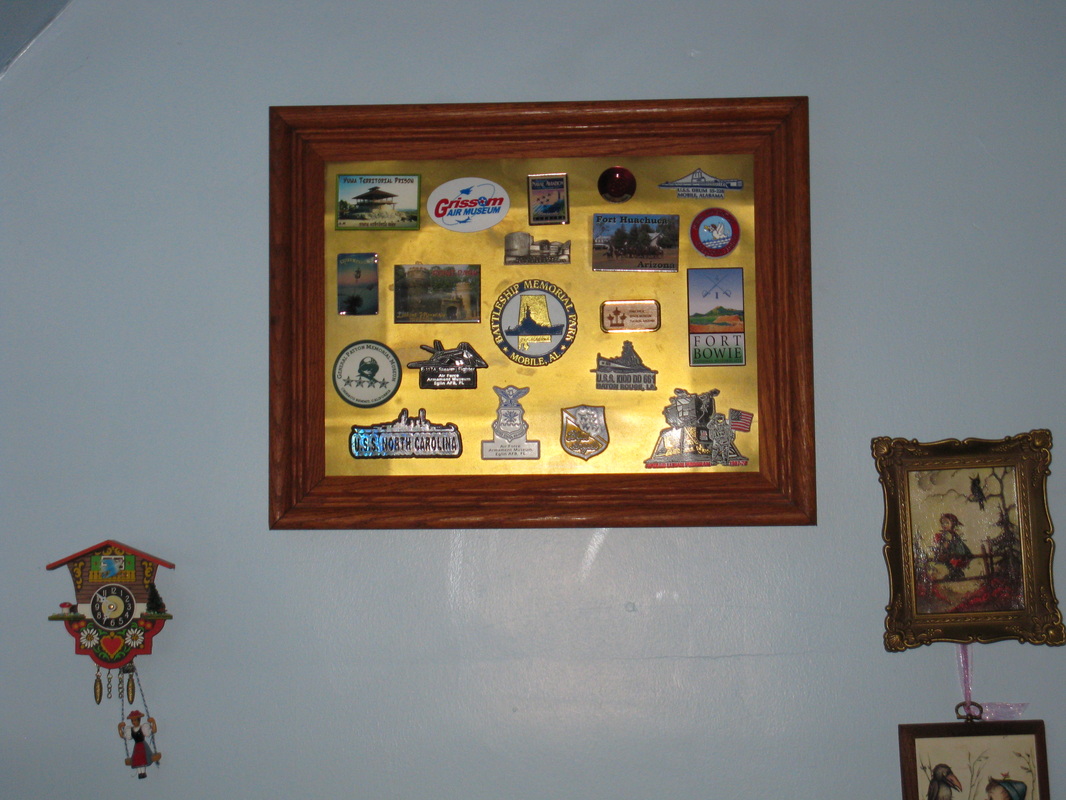Such was the case with our beautiful Black Walnut by the road:
We are all saddened to see this beautiful (and indeed heavily laden) tree felled, but as I kept saying "It's a parapet on the roof kind of situation".
FROGS... :D
I'm feeling rather tired and I doubt my alertness last night when I should have been sleeping, but was instead thinking upon the subject of socks [don't ask--you might laugh], helped that dull tiredness I've had all day. Well, that or the very nasty ache I had in my right hip for most of the day.
I did get a little progress made on Cow Cavalry narration...oh goodness!! Have I forgotten to share that bit of exciting news over here??? Well, last week, Mr. K sent me the narration!!!! I've worked on the Cow Cav a couple of times since then. I am still sorting through and editing audio to one extent or another at this point and haven't put my nose back to the video grindstone. (I like doing that part a lot, so please don't take that description in a negative sense!! :D)
Well, I have a handwork project I'm on a dead-line for...so I'll close for now. :)
































 RSS Feed
RSS Feed















